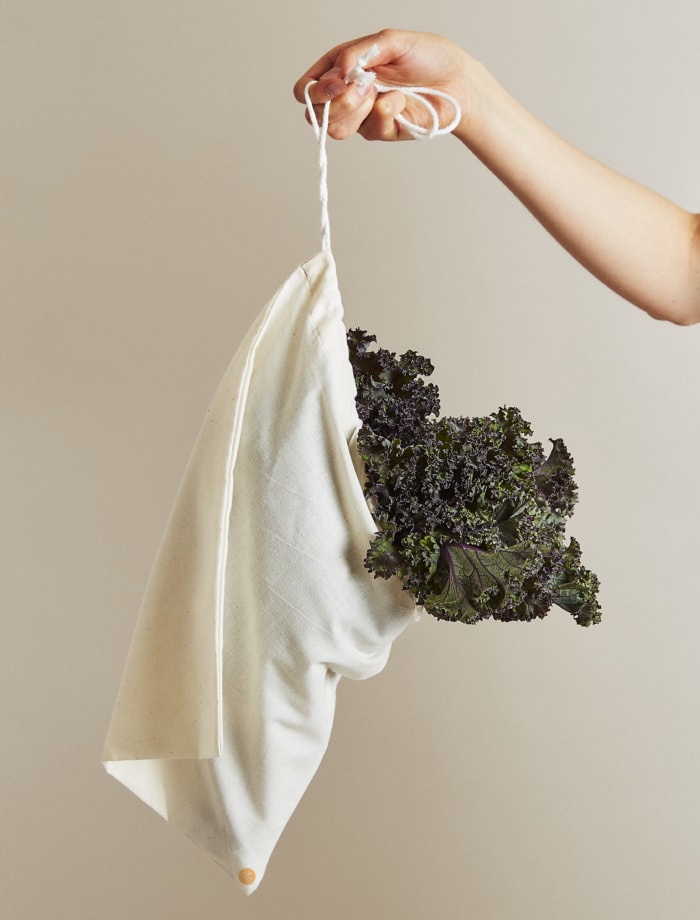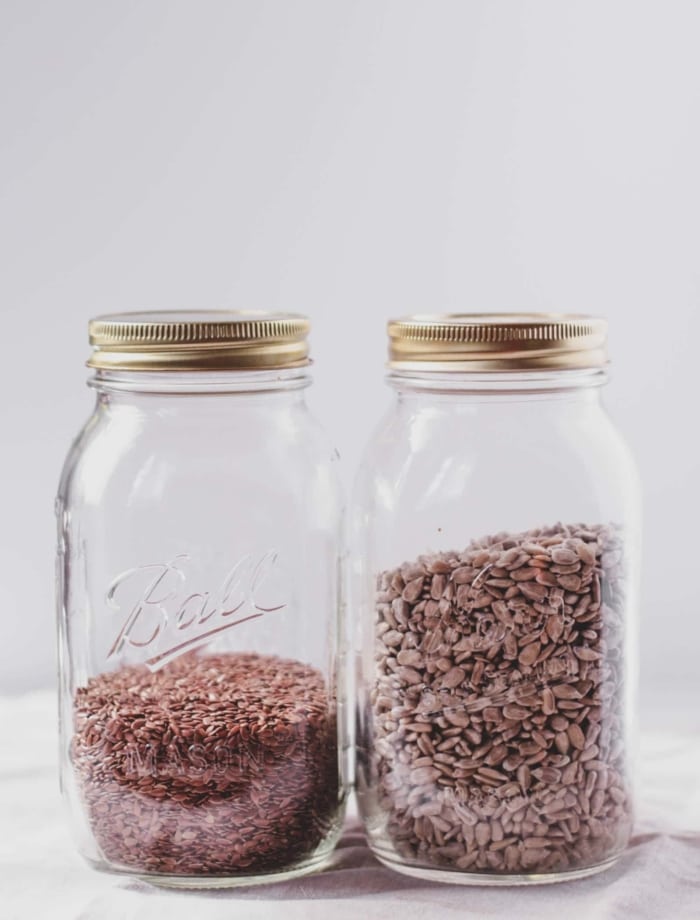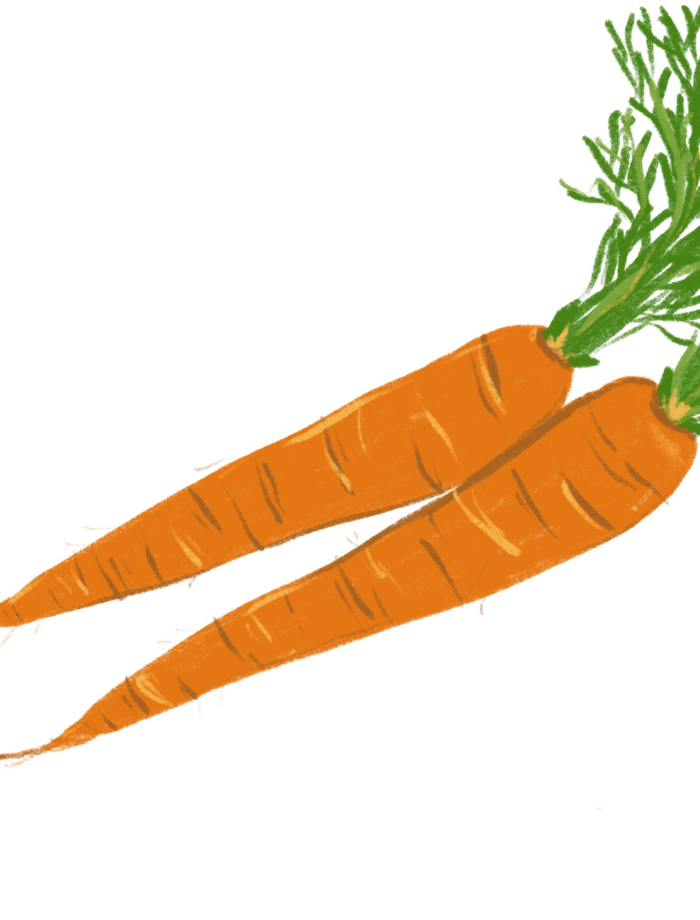Illustration by Hawnuh Lee.
As Moji reflects upon in her essay ‘We all deserve healthy and affordable food,’ it often takes a change of circumstance to start questioning what you’ve always taken for granted. The pandemic had this effect on so many aspects of our lives, but one thing I’ve been thinking about lately is how we buy groceries. In March and April, when supermarket shelves were swept bare by the perfect storm of factory shutdowns, transportation delays, and hoarding behavior, many of us were forced to reconsider what food access really means.
It’s trippy to realize this, but I think that was the first time in my life that I couldn’t go out and buy whatever grocery item I wanted at the drop of a hat, barring factors like temporary low stock and responsible budgeting. In a country where 20 million people live in food apartheid (read about this is Moji’s essay!) the magnitude of privilege I have has never been more apparent to me. It’s made me reassess what my default grocery buying behavior has looked like in the past, and how I can be more intentional with it in the future. Who and what am I supporting with the money I spend on food? What types of systems and policies do I want to endorse with my spending? I don’t have fully formed answers to these questions, but I do know that I want to prioritize investing in local food economies, compensating farmers directly, seeking out farmers / producers / business owners of marginalized identities, and generally spending fewer dollars where they will ultimately line the pockets of billionaires *cough cough Whole Foods*.
The pandemic exposed the inherent precarity in relying on just a few mega corporations to fulfil all of our food needs. Not to get too sidetracked here, but I think there are illuminating parallels between food industry monopolies and the lack of biodiversity in food crops making them more susceptible to extinction. You may have heard about how a widespread fungal disease is threatening to wipe out the world’s supply of bananas. The reason this can happen is almost all of the bananas sold internationally are bred from nearly identical genotypes, 99% are a variety called the Cavendish. In a monoculture like this, every plant is vulnerable to the same set of afflictions — a single contamination could lead to collapse of the whole system. Geneticist Norman Ellstrand writes in a Nautilus article: “In contrast to the riotous rainbow of genetic diversity that lends sustainability to natural plant and animal populations, the world’s banana industry has the stability of an upside-down Egyptian pyramid balanced on its tip.”
Bringing it back to groceries, I think the business of food retail in the U.S. could be aptly compared to a monoculture. According to a report by Food and Water Watch, “Mega-retailers (big-box stores and national grocery chains) are the biggest buyers of grocery products, and they exert tremendous power over food companies and ultimately farmers.” Just a few firms control everything from seeds and fertilizer to salad dressing and frozen dinners. Consumers suffer from food supply consolidation as it leads to reduced consumer choices and higher prices. Enormous chains and mergers increase efficiency and lower costs for the companies, but “most supermarkets just pocket any savings in the form of higher profits.”
Similar to how a strain of disease rapidly led to a banana emergency, COVID-19 rendered our country’s food supply chain incapable of serving its public. When so many moving parts of a complex network like the U.S. food system are controlled by just a few central entities, there is little flexibility to adapt to changing conditions or crisis situations.
It follows that solutions to these issues would look similar as well. Just as Big Agriculture needs to increase crop biodiversity to maintain robust yields, strengthening small businesses and local food economies will make for a more equitable and resilient national food system.
So what are our options for shopping small? I’m so glad you asked.
Support small grocers in your area
I’ve been elated to have access to gorgeous local produce from Village Farmstand, which opened up in my neighborhood in August. The market sources directly from Midwest farms that use organic and regenerative practices, and is committed to paying farmers a fair wage. If you’re not sure whether there’s an independent grocer in your area, browse through this awesome resource from my friend Celia at Litterless.
Research grocery offerings from restaurants you love
Many restaurant owners have pivoted to selling produce and other grocery items directly from their wholesale partners after shutting down primary dining operations. Bungalow by Middlebrow, a cafe and brewery in Chicago, closed their table service in the spring and began selling produce from farmers they’d worked with. Kopi Cafe, another Chicago favorite, started offering family size specials for pickup, including their famous creamy hummus, soups, and housemade kombucha. Show your old haunts some love!
Subscribe to a CSA
If you haven’t already, now is the time to find a farm in your region and sign up. Modern Farmer compiled a list of Community Supported Agriculture programs in all 50 states if you’re not sure where to start. Many are seasonal but subscriptions sell out quickly. If you’re anywhere near Michigan I can’t recommend Granor Farm’s boxes enough. Learn more about CSAs (and options for Portlanders) in Kaitlyn’s helpful guide.
Frequent your neighborhood farmer’s market
If it’s an accessible option for you, I’d argue that getting your groceries from the farmer’s market is one of the most potent ways you can advocate for more sustainable food systems. Nothing compares to getting recommendations for how to prep or store your veg from the farmer that grew it themselves. And when you shop there on the regular, you’ll learn about what’s in season when, and gain insight into how weather and other factors impact the harvest week to week. Fun fact I didn’t know until writing this: the USDA has a national farmer’s market directory you can plug your location into and it will point you in the direction of your nearest market.
Try out a subscription grocery service
There’s a growing number of companies out there that curate and deliver all types of grocery items from ethical and sustainable sources. Imperfect Foods sources produce and pantry items that would otherwise have been tossed by producers due to imperfections or surplus. I love shopping with them because you can fully customize your box every week, and you can skip deliveries anytime. Also, anyone who meets the income qualifications for SNAP is eligible for a reduced cost subscription.
If you’re local to Portland, Seattle, or Austin, MilkRun will deliver a selection of produce sourced from small farms near you, bread from local bakeries, and more. According to their website they are working on expanding nationwide, so stay tuned if you’re not in one of those cities!
I recently subscribed to Thrive Market after years of being fed podcast ads for it, and honestly I should have done it sooner. They really do offer a lot of the pricier ‘superfood’ type items at a lower cost than you’d normally find (I’m looking at you, obscure nut flours). More importantly, Thrive provides small businesses, like our fav upcycled bakers at Renewal Mill, a platform to reach wider audiences, and seems to uphold pretty high sustainability standards for the brands it works with. They also match every paid membership with a free one for someone in need.
—
If you take one thing away from this post, I hope it’s that you do have agency to shape the future you want to see, even when late stage capitalism makes it reeeeally hard to believe it. Conversely, I never want you to feel bad for not always exercising that agency, or for choosing convenience over sustainability if that’s what you need to do to take care of yourself in any given moment. We all have different privileges and ways we can use them to advocate for change. So, by all means, in times of high stress or any other extenuating circumstances, get your groceries delivered from the supermarket. But when you find yourself with the means and energy to put towards championing a more equitable and sustainable food system, I hope you find these recommendations useful.
Also, this is in no way a comprehensive list! If you have your own resources or recommendations to add, I’d love to hear them. Send us your delicious tips via email or on the ‘gram.





